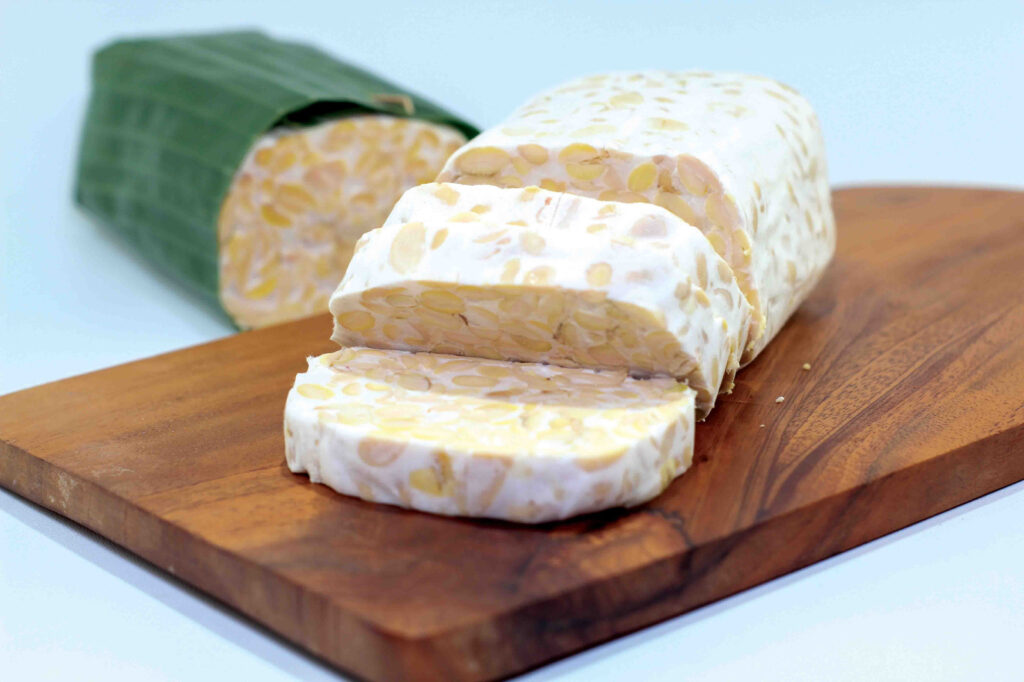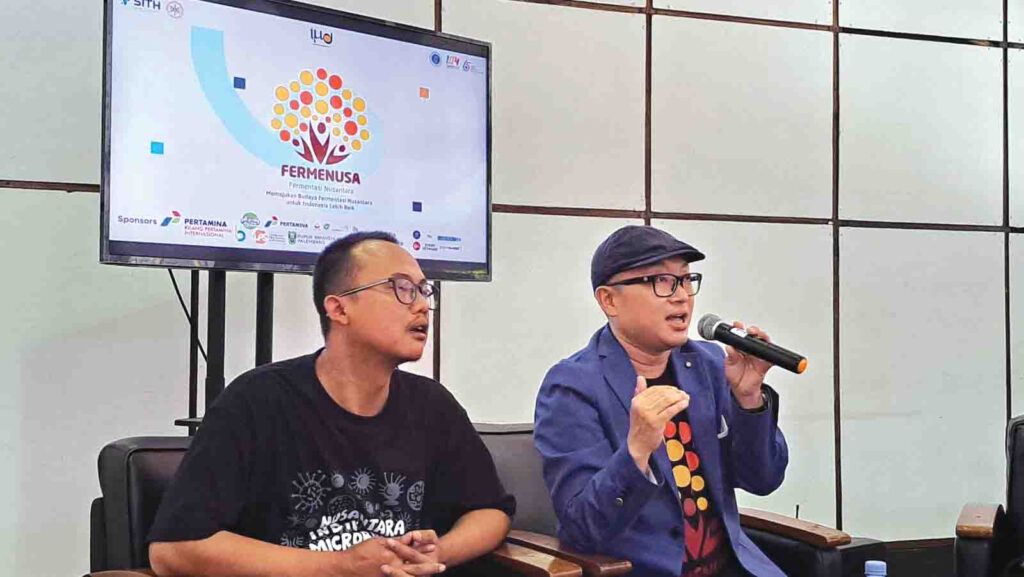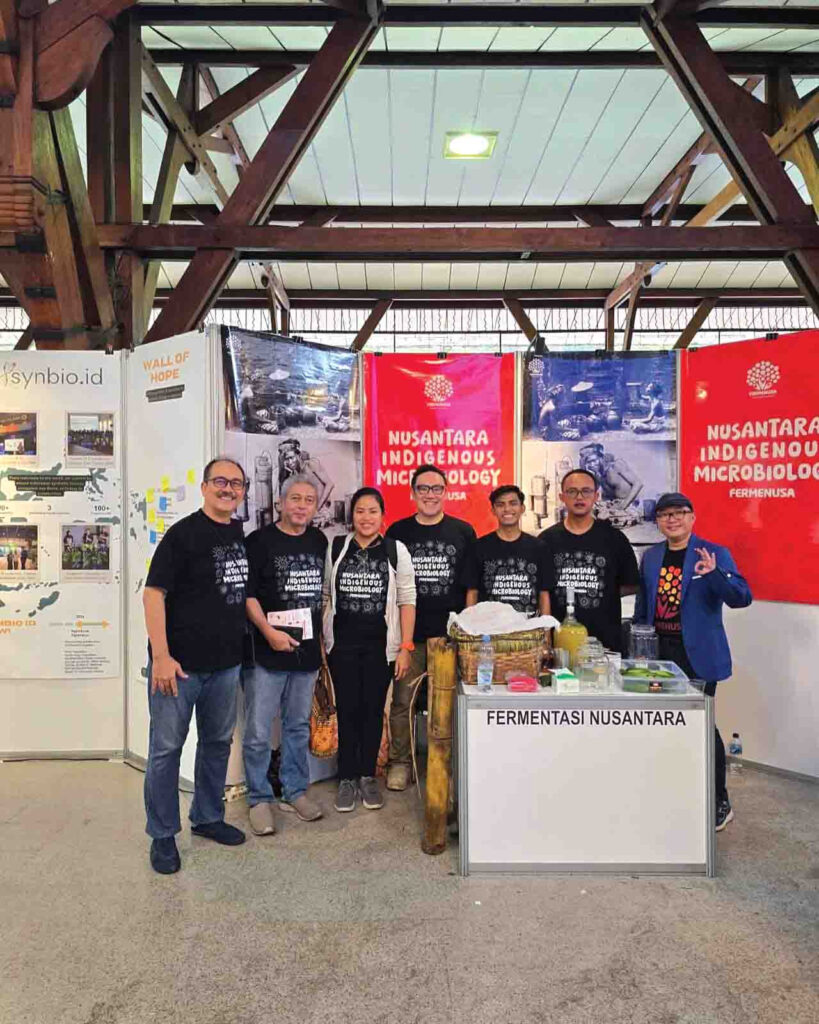
Indonesia has a deep-rooted tradition in fermentation, a culinary process that is found across a range of local food and beverage items. Whilst nations like France and South Korea have been able to showcase their own ‘fermented products’, be it wine or kimchi, on the global stage, Indonesia is yet to proudly champion their own. This is mission of business accelerator, Forum Fermentasi Nusantara (Fermenusa).
Certainly a niche field in food and beverage, Fermenusa’s mission is to promote fermentation-based products to worldwide recognition, looking to harness Indonesia’s unique fermented gems as a way to revive and preserve them as significant aspects of the country’s culinary culture.
Founded by professionals passionate about both the science and artistry of fermentation, Fermenusa plays a key role in spotlighting Indonesia’s rich and diverse range of fermented foods. Among these founders is Harry Nazarudin, affectionately known as Kang Harnaz, a machinery expert in the food and beverage industry and a culinary writer specialising in food chemistry. According to Harnaz, Fermenusa’s mission is simple: “We want to highlight Indonesia’s fermentation products… from artisans to the industry,” he says, emphasising that Fermenusa seeks to elevate small-scale producers by helping them scale up their operations to meet both domestic and international demand.


A fact that many do not know is that Indonesia’s own climate is a forgotten treasure for fermentation. Unlike regions such as Korea, where specific bacteria thrive only in controlled environments, Indonesia benefits from a year-round climate suitable for diverse fermentation techniques. “Indonesia’s natural environment is very ideal for fermentation,” explains Nazarudin. “Similar to how France is suited for growing grapes or Switzerland for dairy, Indonesia is perfect for fermentation.”
Kimchi and wine have become products that are enjoyed internationally, “How can we develop a fermentation food industry like other countries have?” Nazarudin asks. Fermenusa has already identified flagship products to spearhead this movement. Tempeh, cacao, and fermented sweet soy sauce stand out as iconic Indonesian creations with global appeal. “Of these [products], tempeh holds a particularly special place as it is a unique product, only found in Indonesia,” Harnaz emphasises, lamenting that despite its high nutritional value, it remains relatively unknown outside the country.
Meanwhile, fermented cacao presents a significant opportunity to elevate Indonesia’s standing in the global chocolate industry. “People are familiar with chocolate, but what they don’t realise is that the cacao we export isn’t fermented. If our cacao were fermented, we could assign it to Indonesia’s geographical indication,” Harnaz explains. He cites the example of chocolate products labelled as ‘70% pure [country name] chocolate,’ which doesn’t always mean the cacao originated from that country—it simply means it was fermented there. The fermentation process is so crucial, it imparts unique flavour profiles based on the location. This is why geographical indication can only be obtained if the cacao is fermented. With 80-90% of Indonesia’s cacao exported in bulk and often unfermented, a vast, untapped market for regional specialisation and distinctive flavours remains.


Equally promising is Balinese arak, a traditional fermented alcohol that could be Indonesia’s answer to world-renowned liquors. With Bali’s tourism industry booming, there’s potential for arak to become a signature export product, as alcoholic beverages (once distilled) don’t have an expiration date, and their value increases over time. This makes them very competitive in the local market.
Promoting these products beyond their local markets comes with a lot of challenges. “Sometimes, the biggest issue is that information doesn’t get through,” says Harnaz, pointing to the lack of technical know-how as a common stumbling block. For example, producers of traditional arak may not be familiar with the proper hygiene systems for bottling their product. In these cases, Fermenusa steps in to bridge the gap by providing technical assistance and connecting producers with experts like Ibu Teti, another founding member of Fermenusa who is a retired BPOM (Indonesia’s Food and Drug Authority) veteran, who helps them navigate the often-daunting licensing process. Each artisan that comes to Fermenusa brings their own unique set of hurdles. For alcoholic artisans, it’s regulation. For cocoa, the challenge is raw materials. For tempeh, the challenge is value.
To truly break into international markets, Fermenusa emphasises the importance of product quality and branding. “To make a product famous abroad, we must frequently enter competitions,” Harnaz advises, pointing out that it’s essential for producers to refine not just their products but also their packaging, marketing, and brand identity. Instead of spreading resources thin across multiple products, he suggests focusing on a few standout items. “It’s better to focus on two and ensure they stand out. Producers tend to focus on making products, but they need insights into what the market wants.”
IG: @fermentasi_nusantara





